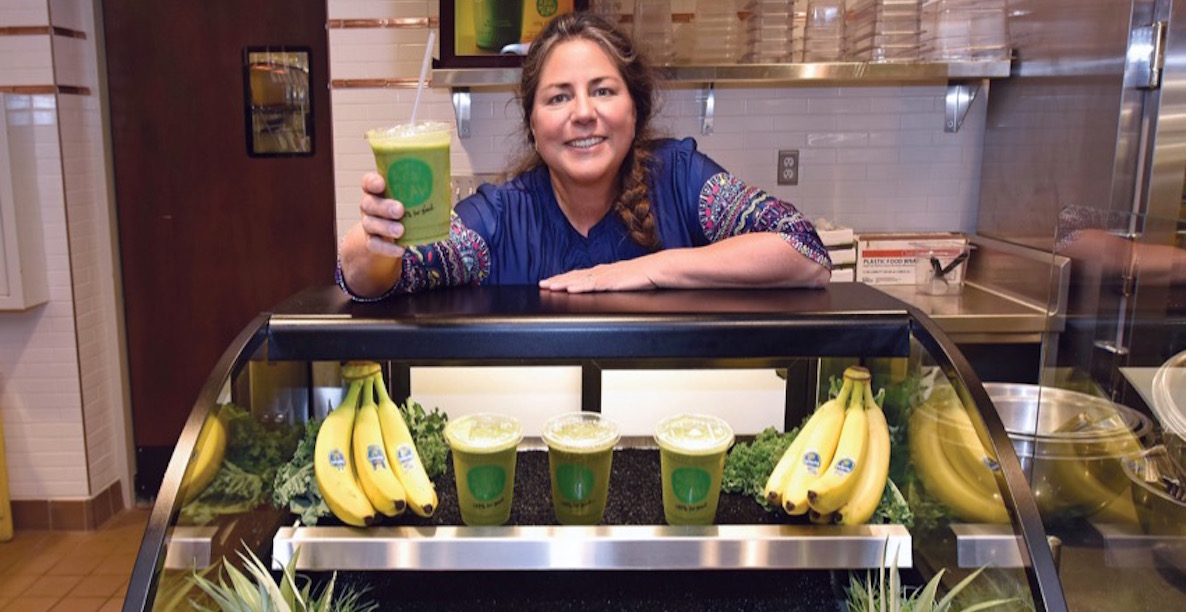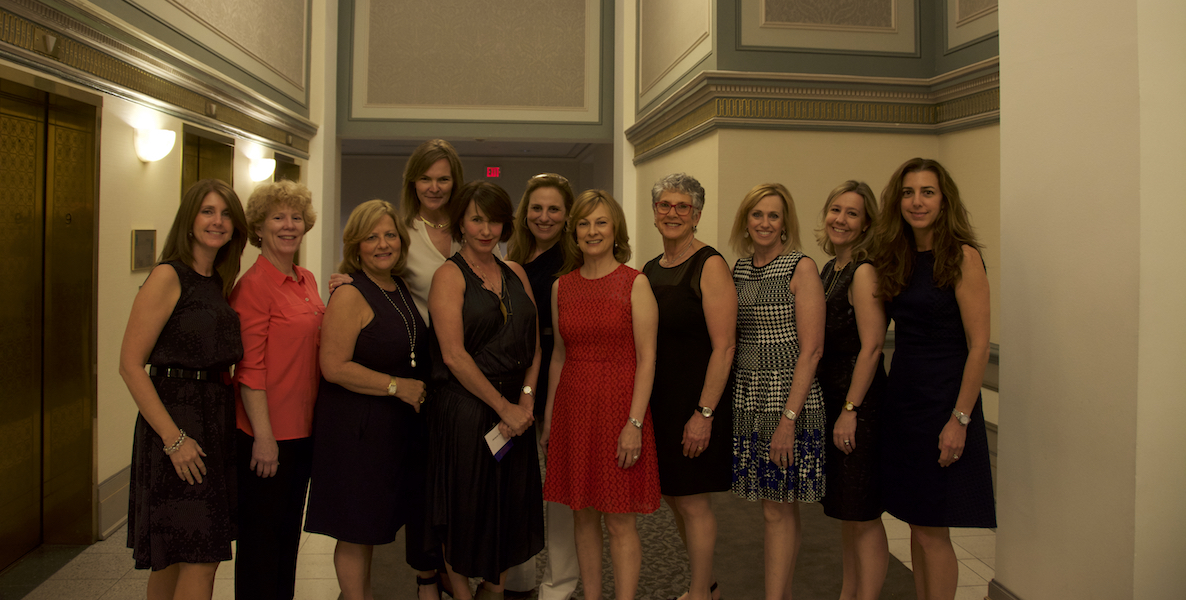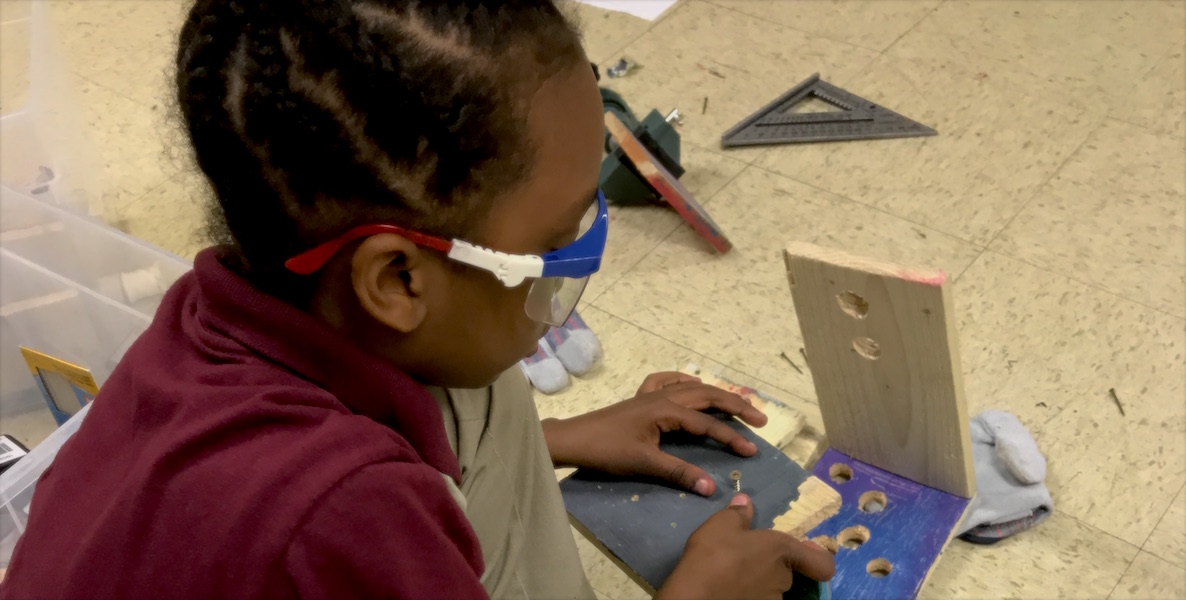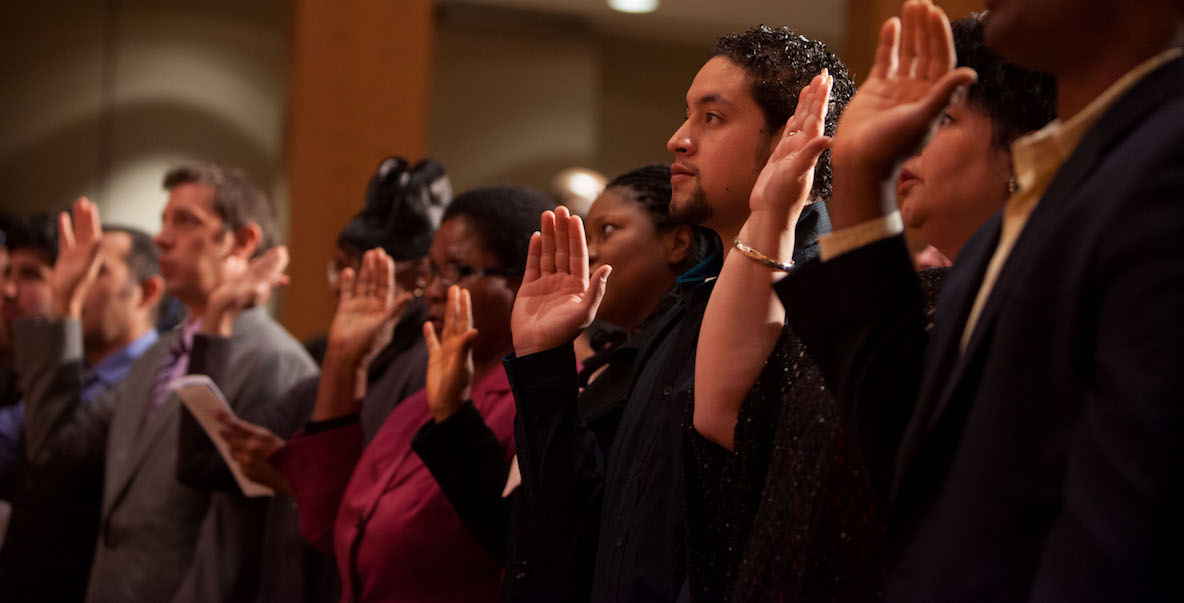María Eugenia González, a native Venezuelan, arrived in Pennsylvania in 2015 with an impressive resume in her briefcase and a “suitcase full of dreams and my few English words.” She had a bachelor’s degree in computer engineering and had worked in the field for four years in Venezuela before moving to Puerto Rico and moving quickly through the ranks at software company Oracle to become a project manager.
But job hunting in the Philadelphia region brought González to an unsettling realization: Her 15 years of experience meant nothing in this country, where she knew no one and had not mastered the language. She had made the move because her husband had received a job offer; her luck was not proving as great.
“My experience doesn’t count here in the United States if I don’t have the contacts and the networking,” she says. “Philadelphia is a welcoming city. However, immigrants lack information.”
González attempted to blindly navigate the job scene for almost a year before finding the support she needed from the Welcoming Center for New Pennsylvanians, a nonprofit that serves immigrants via English classes, business development support and, in González’s case, networking to help her land a position with the American Reading Company. The organization serves immigrants of all walks of life, but is unique in its dedication to serving professional immigrants: 43 percent of its clients have bachelor’s degrees or more from their home countries.
Two hundred thousand immigrants are living in Philadelphia—150,000 of whom are living here legally—making immigrants approximately 13 percent of Philadelphia’s population. Approximately 40,000 of those immigrants are currently eligible for citizenship.
González became an American citizen soon after moving here, something that sets her apart from nearly 100,000 immigrants in the Philadelphia area who are eligible to apply for citizenship and have not yet done so. That’s the impetus behind the Welcoming Center’s Immigrant Leadership Institute, which launched in September with the help of González and others like her, to explore the barriers to citizenship and civic engagement—and find ways to resolve them.
Five months later, with the first cohort of 27 participants about to graduate, they learned that the reasons eligible immigrants are hesitant to apply are plentiful: Lack of information, misinformation and cost—submitting the application costs a whopping $725—among others. One of the weightiest issues was lack of trust.
![]() “They don’t trust the process, they don’t trust the government, and in some cases they don’t even trust non-profit organizations,” says Manuel Portillo, Director of Community Engagement for the Welcoming Center. “It’s this era of threats, insults, and scapegoating immigrants have to endure every single day. Especially in this political environment, a lot of people are fearful and experiencing anxiety about what’s coming in the future.”
“They don’t trust the process, they don’t trust the government, and in some cases they don’t even trust non-profit organizations,” says Manuel Portillo, Director of Community Engagement for the Welcoming Center. “It’s this era of threats, insults, and scapegoating immigrants have to endure every single day. Especially in this political environment, a lot of people are fearful and experiencing anxiety about what’s coming in the future.”
Much of the intention of the Institute, then, is to turn the immigrant participants into trusted sources of information for those in their communities, and in turn, to boost citizenship application numbers in the Philadelphia region. “We found that the mechanism through which people get information is oftentimes word of mouth in their own neighborhoods,” says Portillo. “The participants now have information and connections and resources to share with people in the community.”
With the help of funding from the Knight Foundation, the Immigrant Leadership Institute will be held three times, for five months each, with approximately 25 participants meeting for three hours every other Tuesday. In the first half of each session, an external expert comes to discuss a topic relevant to immigrant integration, such as leadership gaps, power dynamics, civic participation, and the political system.
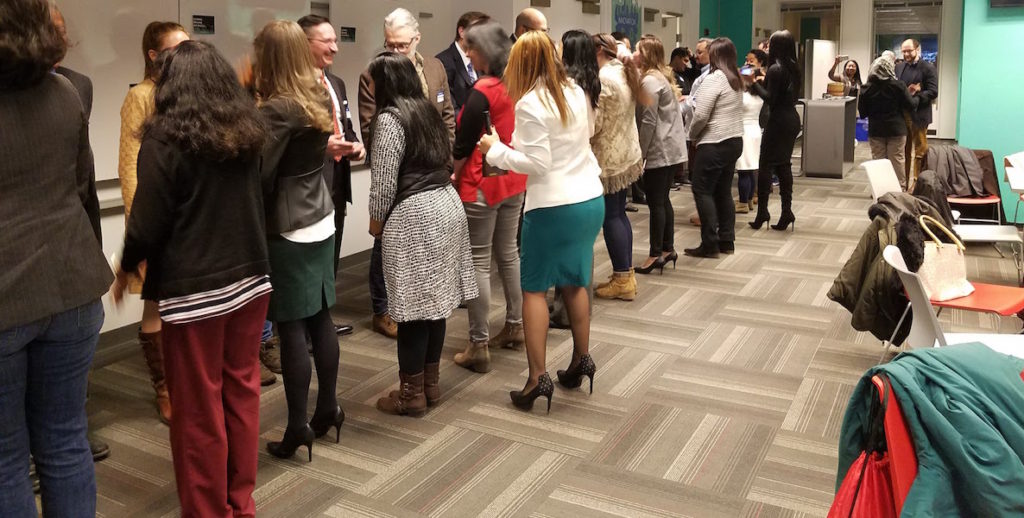
In the second half, a staff member of the Welcoming Center, often Portillo, talks to them about how to organize themselves, connect with their communities, and host public events. In the final weeks of their time with the Institute, participants design their own “action project,” for which they identify a barrier that immigrants face in Philadelphia and take action to eliminate it, thus making them a trusted source of information on that one aspect of immigrant integration.
The first cohort of participants represented 17 different countries, with the vast majority of participants being women. Most of the participants were educated past high school in their home countries, though the upcoming cohort is more diverse in both gender and professional background. The Institute is free, and is currently only accepting applications from those already associated with the Welcoming Center, or those referred by them.
![]() Portillo and the Immigrant Leadership Institute’s efforts to stimulate eligible immigrants to become citizens could have massive political impact in Philadelphia, and could be translated to other cities. Two hundred thousand immigrants are living in Philadelphia—150,000 of whom are living here legally—making immigrants approximately 13 percent of Philadelphia’s population. Approximately 40,000 of those immigrants are currently eligible for citizenship.
Portillo and the Immigrant Leadership Institute’s efforts to stimulate eligible immigrants to become citizens could have massive political impact in Philadelphia, and could be translated to other cities. Two hundred thousand immigrants are living in Philadelphia—150,000 of whom are living here legally—making immigrants approximately 13 percent of Philadelphia’s population. Approximately 40,000 of those immigrants are currently eligible for citizenship.
Counting all new citizens—including those who have not registered to vote—voter turnout is slightly lower than that of native-born Americans—54 percent in the 2016 election compared to 64 percent. But a report from the 2008 election found that once naturalized citizens are registered to vote, this disparity disappears, with 89.2 percent of immigrants voting compared to 89.7 percent of natives. If the Welcoming Center is able to not only increase naturalization numbers, but also voter registration numbers, the organization could alter the makeup of voters at the polls and thus dramatically amplify immigrant voice.
Though Portillo certainly sees the political import of encouraging immigrants to become citizens, the personal benefits to immigrants of increased civic engagement is the true drive behind his work. “Without civic participation and engagement, immigrants have a much harder time building their lives in our city, connecting to the opportunities they need, and gaining the respect and recognition that they deserve,” says Portillo. Civic engagement ultimately means “gaining a sense of belonging as end result of social inclusion, the opportunity to access family sustaining jobs, to open a new business, and to live in a city where you can participate as a decision maker.”
If the Welcoming Center is able to not only increase naturalization numbers, but also voter registration numbers, the organization could alter the makeup of voters at the polls and thus dramatically amplify immigrant voice.
Along with her team, González decided for her action project to attack the barrier of networking in a new city, with a new culture. Everyone on Maria’s team had bachelor’s degrees from their home countries but had, like González, struggled to find jobs upon arriving to Philadelphia.
The team hosted Global Brains of Philly on January 24th, connecting 15 professional immigrants and 15 professional Americans in a “speed dating” networking activity. González says she had two goals: For each immigrant professional to leave with at least one connection, and for American professionals to gain exposure to the immigrant talent available in Philadelphia. “I wanted American professionals to know there are a lot of immigrant professionals, and that we have a lot to offer,” she says.
![]() The event also included a keynote address from Pedro Rodriguez, the Director of the Office of Human Resources for the City of Philadelphia who is himself a native of the Dominican Republic. In addition to giving pointers that may seem simple to those familiar with American culture, but foreign to those from other countries—like firm handshakes and eye contact—Rodriguez also gave the Global Brain attendees some advice specific to the City of Brotherly Love: “Philadelphia is the fifth or sixth largest city, depending on who you’re talking to, but it’s still a small village. The degree of separation here is very small. You can get to meet all the movers and shakers very easily. The city is very accessible in that way, and they need to take advantage of that.”
The event also included a keynote address from Pedro Rodriguez, the Director of the Office of Human Resources for the City of Philadelphia who is himself a native of the Dominican Republic. In addition to giving pointers that may seem simple to those familiar with American culture, but foreign to those from other countries—like firm handshakes and eye contact—Rodriguez also gave the Global Brain attendees some advice specific to the City of Brotherly Love: “Philadelphia is the fifth or sixth largest city, depending on who you’re talking to, but it’s still a small village. The degree of separation here is very small. You can get to meet all the movers and shakers very easily. The city is very accessible in that way, and they need to take advantage of that.”
He dispensed some time sensitive advice as well: “Know who the Eagles are. Know who the Phillies are, so you don’t feel isolated when you go into a conversation and people are talking about that.”
González hopes her team’s efforts, and the Immigrant Leadership Institute at large, will continue to help professional immigrants with experiences like hers, and the team plans to host the same event, though improved via survey results, in June. “We have a lot of things to give to the community and the economy in Philadelphia,” she says. “We have a lot of good things to share but we need the opportunity to do it.”
Header photo: Official White House Photo by David Lienemann


